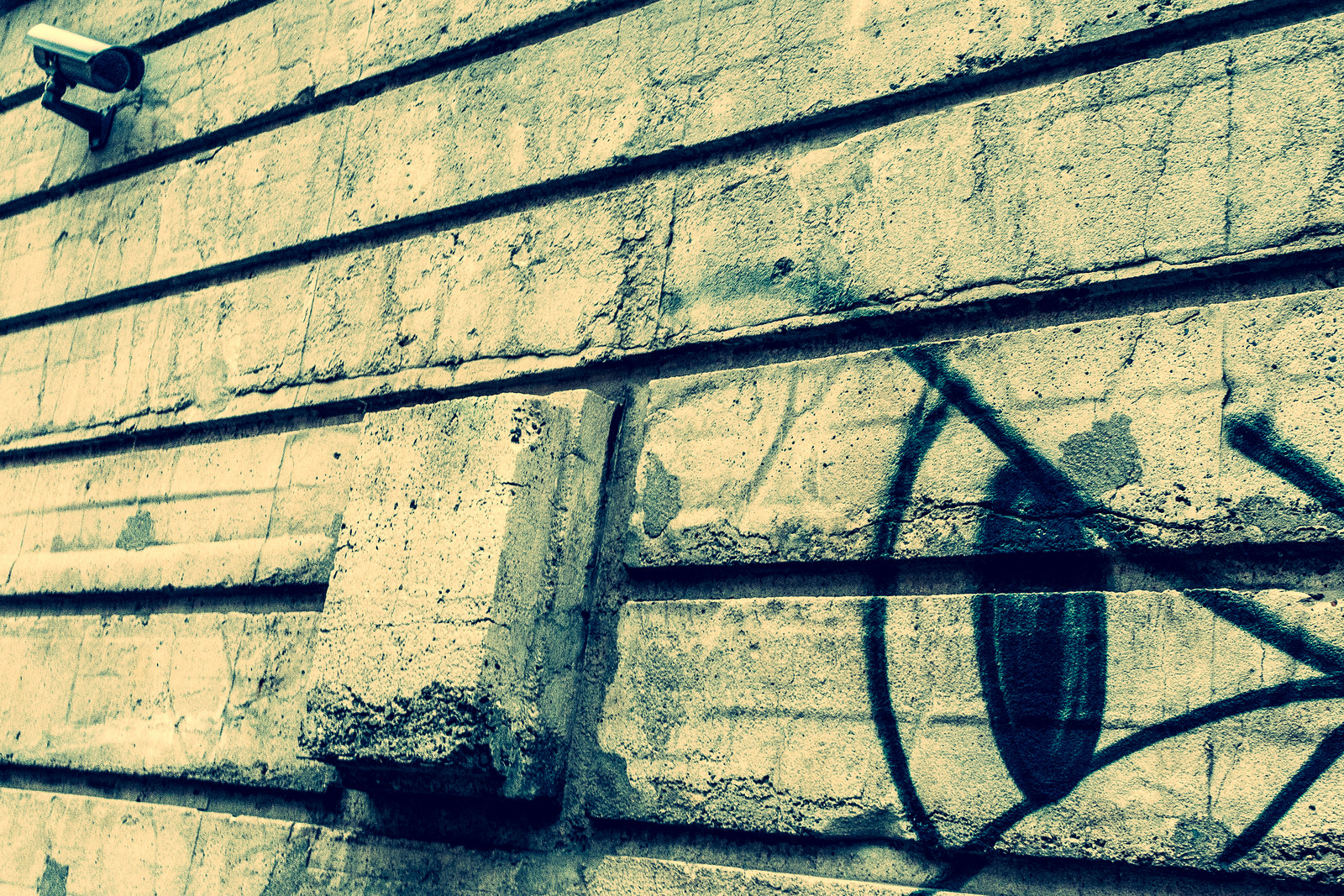The Privacy Movement and Dissent: Whistleblowing
- 21 juni 2017
In 2013-2015 I made a snapshot of the Berlin-based privacy movement. Join me in exploring how privacy activists use whistleblowing as an expression of dissent and why whistleblowers take up a special place within the movement.
Whistleblowing as a way of expressing dissent is specifically tied to the privacy movement. To fully understand the act of whistleblowing, it is important to understand that whistleblowing as we encounter it in the privacy movement is not only a form of dissent, but shows qualities of civil disobedience and protest as well. In this article I set out to further define the act of whistleblowing and explore its unique role within the privacy movement. First, I will look at whistleblowing in relation to civil disobedience and protest, and second I will explore the role of whistleblowing within the privacy movement.
A Definition
First, it may be helpful to have a clear definition of what whistleblowing exactly entails. Peter J. Bubb describes whistleblowing as follows:
Whistleblowing is a deliberate non-obligatory act of disclosure, which gets onto public record and is made by a person who has or had privileged access to data or information of an organization, about non-trivial illegality or other wrongdoing whether actual, suspected or anticipated which implicates and is under the control of that organization, to an external entity having potential to rectify the wrongdoing.
It is worth emphasizing that a whistleblower always deliberately discloses the information and from the start intends to make the information public. In addition, a whistleblower will seek an unconventional way to release information because conventional paths within the organization have turned out to be a dead end. Whistleblowing is different from other forms of “informing” because it is not just the release of information but at the same time also an indictment that identifies wrongdoing and that challenges a person or an organization. Although it functions as a control instrument and is usually done out of concern for the public interest, whistleblowers are still often negatively associated with sneaks, spies, squealers, and other despised forms of informers.Jubb, Peter B. “Whistleblowing: A Restrictive Definition and Interpretation” Journal of Business Ethics 21 (1999): 77-94.
Two elements characterize whistleblowing as an expression of dissent: disagreement and complaint. This can be explained with the help of economist Albert Hirschman’s response categories; three ways in which employees might respond to feelings of dissatisfaction towards the organization they work for. The first response, the exit response, means that an individual chooses to dissociate oneself from the problem. The loyalty response means that an individual will remain loyal to the organization despite of its wrongdoings. Third, the voice response means that an individual chooses to express their concern or disagreement. The disagreement becomes dissent once it is expressed and has led to a complaint. This comes in many different shapes and forms, and can vary from anything between negative body language to documented and publicized statements. Whistleblowing is the most direct and unambiguous form. It has a clear aim to enforce change within an organization and is often done out of ethical considerations, but never under threat or under oath.Jubb, Peter B. “Whistleblowing: A Restrictive Definition and Interpretation” Journal of Business Ethics 21 (1999): 77-94.
Civil Disobedience
In addition to dissent, whistleblowing can also be seen as civil disobedience: a “public, nonviolent, conscientious yet political act contrary to the law [and] usually done with the aim of bringing about a change in the law or policies of the government”.Scheuerman, William E. “Whistleblowing As Civil Disobedience: The Case of Edward Snowden.” Philosophy and Social Criticism 40.7 (2014): 609-628.
In order to show how whistleblowing can function as a form of civil disobedience, it is useful to zoom in on Edward Snowden and the statement he made while he was held up at the Moscow airport.
I did what I believed right and began a campaign to correct this wrongdoing. I did not seek to enrich myself. I did not seek to sell U.S. secrets. I did not partner with any foreign government to guarantee my safety. Instead, I took what I know to the public, so what affects all of us can be discussed by all of us in the light of day, and I asked the world for justice.
The aims Snowden tried to achieve by disclosing the NSA-documents are politically motivated: he wanted to inform the public about government surveillance activities so that policies could be adjusted as the public wished. By turning to the press he addressed this issue openly, and by addressing this issue openly he forced the entire discussion out into the open and thereby turned it into a public discussion. What he wanted to achieve with his disclosures and the subsequent public discussion was clear, and the way in which he did this was deliberate and, in line with the aforementioned, conscientious.
Protest
Literature on the topic makes a distinction between whistleblowing and protest. Contrary to whistleblowing, protesting is something that is done by a group and hardly ever by one single individual. In addition, mobilization is the most powerful element of protesting, because it is usually the mobilization of human and non-human resources that brings organizations’ wrongdoings to light. Furthermore, whistleblowing and protest also differ in the sense that whistleblowers, in comparison to protesters, are more vulnerable to reprisals, do not endorse violence, operate solo, have an intra-organizational focus, have few strategic options, and only approach the media as a last resort. The boundary between whistleblowing and protest, however, can become vague as they are both a “morally propelled action”, involve “personal risk-taking”, are “changed-focused”, are “vulnerable to name calling”, and involve “strategic planning".De Maria, William. “Whistleblowers and Organizational Protesters. Crossing Imaginary Borders.” Current Sociology 56.6 (2008): 865-883.
When looking at the way in which Edward Snowden blew the whistle, the differences between whistleblowing and protest become even smaller. Snowden’s actions already stopped being those of an individual the moment he contacted Greenwald and Poitras, months before he gave them the entire set of documents and the subsequent moment of actual publication. It is also worth noting that the use of media was certainly not Snowden’s last resort but rather one of his first choices instead. Furthermore, Snowden did not solely focus on change within the organization. Instead, he focused on a type of change that would entail a complete social and political turn, not just of the NSA but of a larger group of intelligence agencies and governments.
Whistleblowing in the Privacy Movement
Due to a number of reasons, whistleblowers take up an exceptional place within the privacy movement. First, much of what the movement is concerned with is related to actions of intelligence services of which the exact conduct is not made public. Activists are therefore quite reliant on the information whistleblowers disclose to know what is really happening in the field of surveillance.
Second, once whistleblowers have decided to blow the whistle and make certain classified information public, their position often changes. By blowing the whistle they exclude themselves from the organization they previously worked for, both physically and mentally. They often find a new home within the privacy movement. We can, again, turn to Edward Snowden to see how such a development unfolds.
The first year after his revelations Snowden kept a relatively low profile. Slowly, he started to accept awards and give public speeches, for example at the 2014 Dutch Big Brother AwardsEdward Snowden accepted the Winston Award.; took his first steps in writing articles, for instance in The New York TimesEdward Snowden's article in The New York Times.; and became a member of the Board of Directors of the Freedom of the Press FoundationVisit the Freedom of the Press Foundation's website here..
Last, because whistleblowing can have such drastic consequences, whistleblowers often receive respect and protection by the privacy movement. There is an enormous awareness among privacy advocates of the sacrifices whistleblowers make. A striking example is Glenn Greenwald’s keynote lecture at the 30th Chaos Communication CongressGlenn Greenwald addresses the audience at 30C3., six months after the first publications of the Snowden documents.
It is really hard to put into words what a profound effect [Snowden’s] choice has had on me, and on Laura, and on the people with whom we've worked directly, and on people with whom we've indirectly worked, and then millions and millions of people around the world. The courage and the principled act of conscience that he displayed […] will inspire and convince millions and millions of people to take all sorts of acts that they might not have taken because they've seen what good for the world can be done by even a single individual. But I think that it's so important to realize, and to me this is the critical point, is that none of us […] did what we did in a vacuum. We were all inspired by people who have done similar things in the past. I'm absolutely certain that Edward Snowden was inspired in all sorts of ways by the heroism and self-sacrifice of Chelsea Manning. And I'm quite certain that, in one way or another, she, Chelsea Manning, was inspired by the whole litany of whistleblowers and other people of conscience who came before her to blow the whistle on extreme levels of corruption, wrongdoing and illegality among the world's most powerful factions. They in turn were inspired, I'm certain, by the person who is one of my greatest political heroes, Daniel Ellsberg, who did this forty years ago.
Moments before he made this statement, Greenwald took the time to thank his source, Edward Snowden. He stated that Snowden “has been utterly indispensable and deserves every last accolade and to share in every last award”. This was received by the audience with loud applause. This respect for whistleblowers also shows in organizations that support whistleblowers. When whistleblowers leak classified information, there is much at stake for them and they largely depend on others for help. They are at risk of losing their freedom, either because they are given a prison sentence or because they are forced to live in exile like, for instance, Snowden. This is a high price to pay, and activists and organizations within the movement dedicate themselves to helping them.
Whistleblowers have an exceptional position within the privacy movement; both as valuable sources of information and as respected members. And although whistleblowing should, according to literature, not be seen as protest, in practice we see that for the privacy movement the two are intricately linked. In next week's article, I will further explore how the privacy movement uses art to express dissent.

